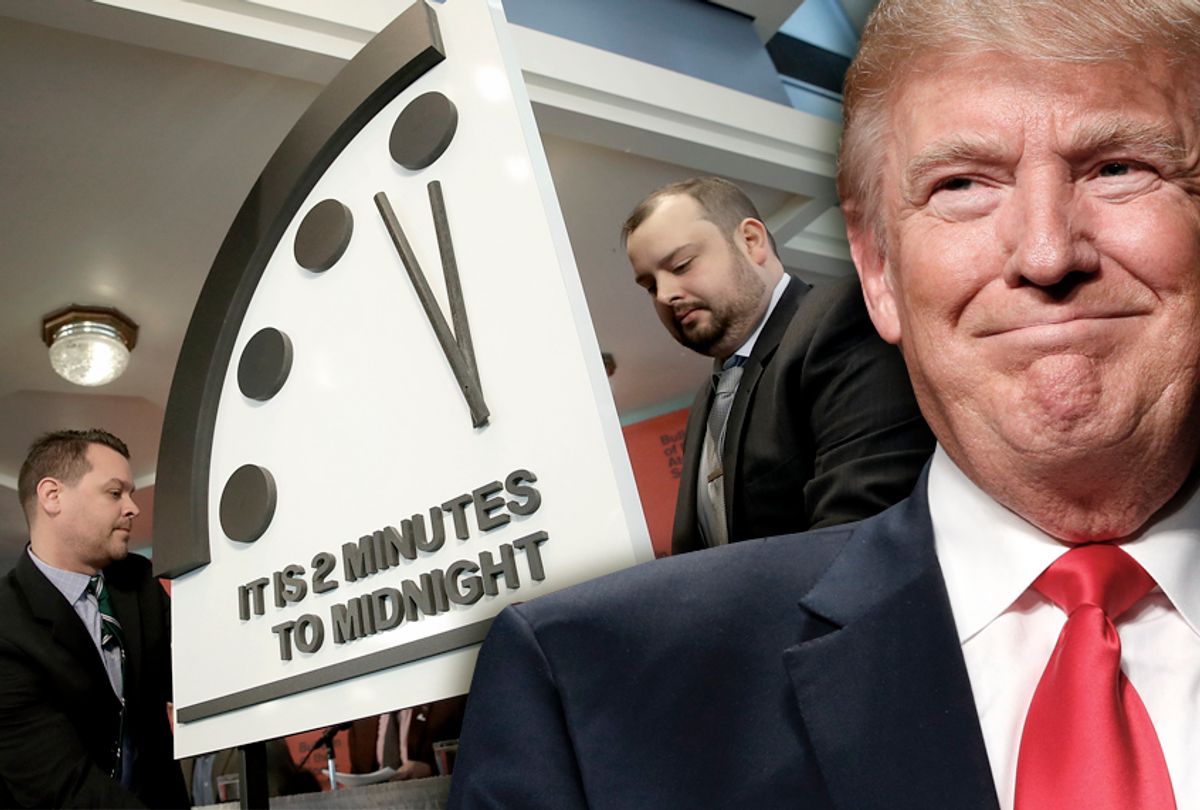Warning that the U.S. is already engaging in a new nuclear arms race as officials announced the development of a new “low-yield” warhead, nuclear disarmament campaigners ramped up their calls Monday for nations to sign on to an international treaty prohibiting the use of nuclear weapons.
The National Nuclear Security Administration (NNSA) announced that the U.S. has begun manufacturing the new weapon, the W76-2, and that the first batch of missiles is set to be delivered to the U.S. military by October 2019. The warhead will give new so-called “flexibility” to Trident missiles, making it easier for President Donald Trump—a future presidents—to deploy the weapons.
The International Campaign to Abolish Nuclear Weapons (ICAN) wrote on Twitter that the availability of such a weapon will make nuclear war even more likely than it has been under President Donald Trump.
The “low-yield U.S. Trident [will] make first use more likely” by the Trump administration, ICAN researcher Stuart Casey-Maslen wrote.
The Trump administration has pushed for the development of a low-yield weapon that would destroy a smaller area than its existing warheads, writing in its Nuclear Posture Review (NPR) last year that such warheads would make nuclear deployment by adversaries “less likely.”
But according to the Guardian, critics including Stephen Young of the Union for Concerned Scientists (UCS) say that a weapon which is easier to deploy is an especially dangerous development with Trump in office, putting the globe at the mercy of “a president who takes pride in his unpredictability and has literally asked: ‘Why can’t we use our nuclear weapons?'”
The explosive power of the W76-2 is expected to be about five kilotons of TNT—a third of the power of the bomb the U.S. launched at Hiroshima in 1945, making it still incredibly destructive.
Trump has shown a disconcerting willingness to engage in nuclear war—hiring former Reagan and Bush official John Bolton as his National Security Adviser. Bolton has pushed the president to withdraw from the 1987 Intermediate-range Nuclear Forces (INF) treaty with Russia. Trump is expected to announce this coming weekend that the U.S. is suspending its compliance with the treaty, accusing Russia of violating the agreement.
“Frankly, mission creep is my greatest worry” regarding the development of a new low-yield warhead, Hans Kristensen of the Federation of American Scientists told the Guardian. “To what extent does this signal a new willingness on the part of the U.S. to start using strategic nuclear weapons in a tactical and very limited way early in a potential conflict?”




Shares